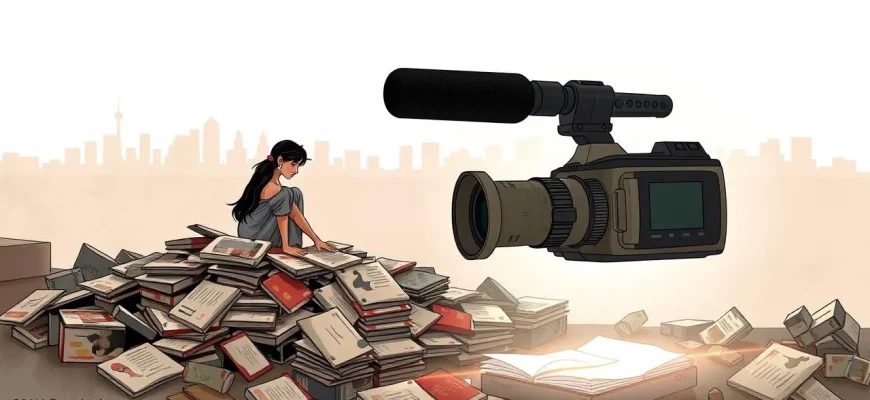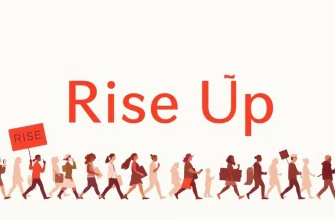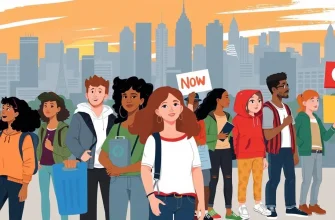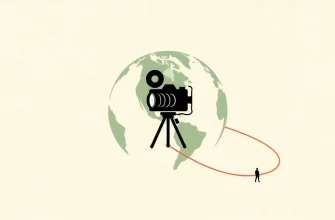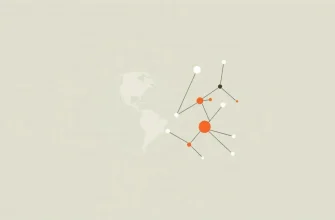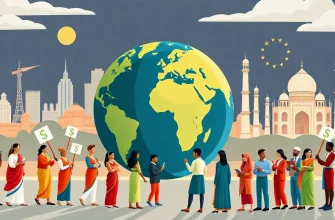Poverty is a complex and pervasive issue that affects millions worldwide. These documentaries delve deep into the lives of those living on the edge, offering not just a glimpse into their daily struggles but also sparking conversations about inequality, policy, and human resilience. This curated selection of films provides a profound understanding of poverty's multifaceted nature, making it an invaluable watch for anyone interested in social justice, economics, or simply the human condition.

The End of Poverty? (2008)
Description: This documentary explores the historical roots of poverty, examining how colonialism, slavery, and debt have shaped the economic landscape of the world, leading to persistent poverty in certain regions.
Fact: The film was directed by Philippe Diaz, who also co-wrote the screenplay. It features interviews with notable figures like Nobel Prize winner Joseph Stiglitz.
 Watch Now
Watch Now 
Waste Land (2010)
Description: Follows artist Vik Muniz as he collaborates with catadores, waste pickers in Rio de Janeiro's largest landfill, highlighting their lives and the dignity they find in their work.
Fact: The film was nominated for an Academy Award for Best Documentary Feature, showcasing the transformative power of art.
 Watch Now
Watch Now 
The Invisible War (2012)
Description: While primarily about sexual assault in the U.S. military, the film also addresses the poverty and lack of support systems for victims, many of whom struggle financially after their service.
Fact: The film led to significant policy changes within the military regarding the handling of sexual assault cases.
 Watch Now
Watch Now 
The Queen of Versailles (2012)
Description: Chronicles the life of Jackie Siegel, a billionaire's wife, as her family's wealth plummets during the 2008 financial crisis, offering a stark contrast between wealth and poverty.
Fact: Originally intended as a light-hearted look at excess, the film evolved into a poignant exploration of economic disparity.
 Watch Now
Watch Now 
Living on One Dollar (2013)
Description: Four young friends from the U.S. live on $1 a day for two months in rural Guatemala to understand the daily struggles of the impoverished, offering a firsthand account of extreme poverty.
Fact: The film was shot by the participants themselves, providing an authentic, raw perspective on their experience.
 Watch Now
Watch Now 
The Interrupters (2011)
Description: This documentary follows former gang members in Chicago who work to mediate conflicts and prevent violence, often in impoverished neighborhoods.
Fact: The film was directed by Steve James, known for his work on "Hoop Dreams," another documentary about urban life.
 30 Days Free
30 Days Free 
The Pruitt-Igoe Myth (2011)
Description: Focuses on the rise and fall of the Pruitt-Igoe housing project in St. Louis, exploring how urban planning and policy decisions led to the concentration of poverty.
Fact: The documentary uses archival footage and interviews to give voice to former residents, offering a nuanced look at public housing.
 30 Days Free
30 Days Free 
Born Into Brothels (2004)
Description: This Oscar-winning documentary follows the lives of children born to prostitutes in Calcutta's red-light district, showcasing their dreams and the transformative power of photography.
Fact: The film won the Academy Award for Best Documentary Feature in 2005, highlighting its impact on global audiences.
 30 Days Free
30 Days Free 
The Harvest (2010)
Description: Focuses on child migrant farm workers in the U.S., revealing the harsh realities of poverty and exploitation faced by these young laborers.
Fact: The film was instrumental in pushing for legislative changes to protect child farm workers.
 30 Days Free
30 Days Free 
The Working Poor (2006)
Description: Examines the lives of America's working poor, showcasing the struggles of those who work full-time yet still live below the poverty line.
Fact: The film was produced by PBS's "Frontline" series, known for its in-depth investigative journalism.
 30 Days Free
30 Days Free 
